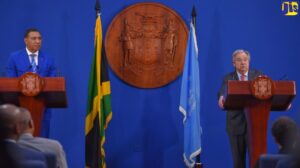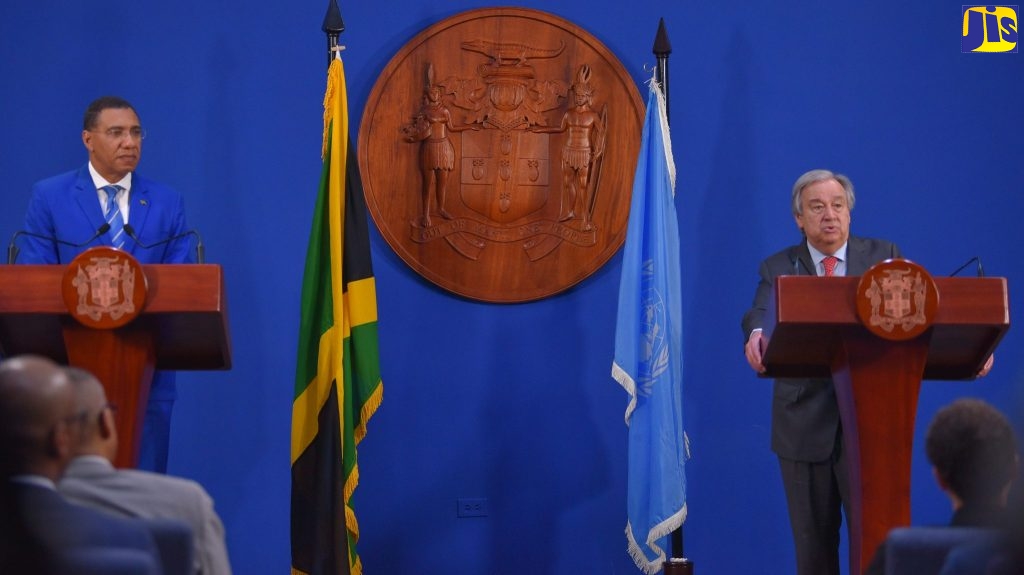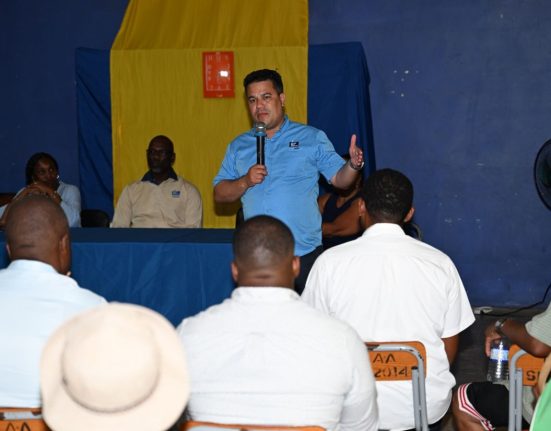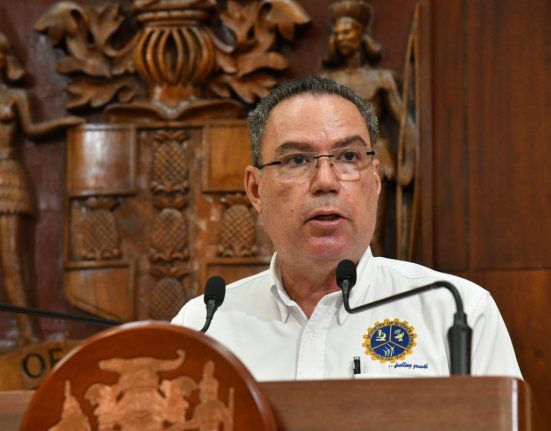
Prime Minister Andrew Holness, on Monday, held bilateral talks with United Nations Secretary-General, António Guterres, at the Office of the Prime Minister in Kingston.
During their meeting, the secretary-general and the prime minister discussed the impact of the climate crisis on small island developing states, as well as the situation in Haiti and how to involve the international community.
Addressing a press briefing held at the Office of the Prime Minister, Holness said discussions were held on the work that has been undertaken by the Group of Friends on Sustainable Development Goals (SDG) Financing and the Financing for Development in the Era of COVID-19 and Beyond initiative.
“We had very fruitful discussions on the work that we have undertaken… on the critical challenges that developing countries are facing and the need for reform of the international financial system,” Holness said.
“We wish to assure you of Jamaica’s strong commitment to this very important work and of Jamaica’s commitment to multilateralism, and the central role the United Nations plays in ensuring that these very important matters of the reform of the global financial architecture that it has undertaken, that it is successful and that it is beneficial for developing countries and, in particular, small island developing states, like Jamaica,” he added.
Jamaica is co-chair of the Group of Friends on Financing for Development, alongside Canada.
The prime minister said the secretary-general acknowledged the courageous economic choices that Jamaica has made to achieve fiscal sustainability and to get its economy back on track for real growth, since the pandemic.
Holness said the secretary-general also articulated the need for urgent reform and overhaul of the international economic and financial architecture, to support reforms and to address unique risks and challenges faced by small island developing states such as Jamaica.
Both parties discussed the inability of the current financial architecture to address a number of global challenges, such as climate change, as well as the principles that would underpin a reformed system.
“Since 2016, along with the prime minister of Canada, I have consistently pushed for this reform. I am pleased to see new initiatives built on the foundation that we have laid in terms of our work in this area.
“We noted the international financial institutions have been responsive to calls for reform in this respect, which gives hope for progress to address funding gaps and to provide emergency liquidity to developing countries for resilience building,” Holness said.
They also agreed there is still much more work to be done and discussed the need for greater emphasis on adaptation in the discussion on climate change.
The prime minister said more financing needs to be made available to developing countries, particularly small island states, for adaptation.
Discussions were also held on regional matters, in particular the situation in Haiti.
“We lamented that there has not been more action to address the situation in Haiti and as we do have this platform… we repeat our call for greater attention to be paid by the international community to the very urgent security and humanitarian situation in Haiti,” Holness said, adding that CARICOM is doing its part within its resources, to assist.
He informed that he led a CARICOM mission to Haiti, where meaningful discussions were had with the stakeholders there.
“That process is advancing. I take the view that with greater effort, we can see a breakthrough towards a better and broader consensus towards a solution in Haiti. The inescapable fact is that Haiti needs security support,” Holness said.
Regarding Haiti, Guterres noted that the country is in a tragic situation, with dramatic humanitarian needs, a political system that is paralysed, and “you have levels of violence by gangs that are absolutely appalling”.
“We have a political problem, and we need to bring the different stakeholders together to find the political way for a legitimate government recognised by all, and we need to address the violence of the gangs,” he argued.
Guterres said he made a proposal to the United Nations Security Council a few months ago within the context of support for equipment and the training of the national police force, and to be able to have the presence of an international robust police force to crack down on the gangs in Haiti.
“This has been a difficult exercise. It has been difficult to mobilise the will of those that would have the best capacity to lead this operation, and it has been difficult to create also the political conditions to make it easier for different countries to accept to be part of these actions,” he argued.
He also informed that a new meeting is being scheduled between CARICOM and Haiti to chart a path to consensus building to bring peace and stability to the country.





